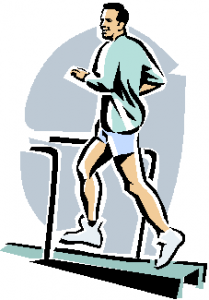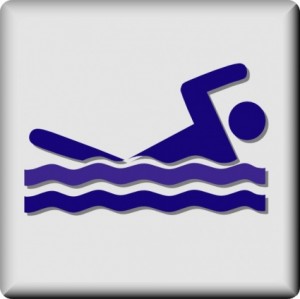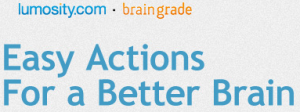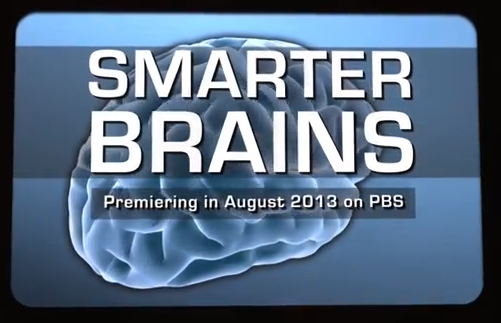Cognitive Vitality As We Get Older
 You will often hear that staying “mentally active” is important for maintaining a brain health as you age. A variation on the use it or lose it theme. But what exactly does being mentally active mean in this sense? Is reading a book OK and watching an action movie not?
You will often hear that staying “mentally active” is important for maintaining a brain health as you age. A variation on the use it or lose it theme. But what exactly does being mentally active mean in this sense? Is reading a book OK and watching an action movie not?
A new study tackles this question and the findings are interesting. Turns out activities such as – playing a game, listening to classical music or solving cross word puzzles – “probably won’t bring noticeable benefits to an aging mind”. That is an interesting claim as these types are activities are frequently sited as good examples of what should provide benefit.
The key is to engage in mental activities outside your comfort zone that force you to learn new skills. For example, learning photography or quilting. The general point is:
“It seems it is not enough just to get out and do something — it is important to get out and do something that is unfamiliar and mentally challenging, and that provides broad stimulation mentally and socially,…”
Doing mental activities that we have already mastered, while still worthwhile, may not be providing the brain boost and protection we need as we age.
Categories: Cognitive Decline, Cognitive Development, Lifestyle, Memory and Learning, Older Adult Tags:
A Placebo for Cognitive Enhancement?
In the Next Brain blog we report on research that suggests how we think about our own mental abilities has a significant impact on how well we perform. For example, in Perception of Age Impacts Cognitive Performance, we reported on a study that shows simply “thinking that you are old” will impact your score on a dementia test.
 Self-image, especially as it relates to what we believe we know, might be a powerful placebo for cognitive performance. More evidence comes from Your Thinking can Release Abilities Beyond Normal Limits, in The Scientific American. The article reviews an experiment that shows if you expect to know the answer to a question you tend to score better.
Self-image, especially as it relates to what we believe we know, might be a powerful placebo for cognitive performance. More evidence comes from Your Thinking can Release Abilities Beyond Normal Limits, in The Scientific American. The article reviews an experiment that shows if you expect to know the answer to a question you tend to score better.
Such results suggest (but by no means prove) that confidence, positive thinking, a growth mindset and affirmation could have a significant impact on memory, learning, creativity, visual acuity and a wide-range of cognitive performances.
This is a good news. It does not take too much effort to develop a positive affirmation about our mental abilities and then repeat it on a regular basis. For example, when struggling with a hard problem you could regularly repeat: “As I have in the past, I will see the answer to this problem”. You could even combine the affirmation with a ritual such as sitting in your creative chair or wearing your lucky shirt.
I am interested to hear from readers that have examples of placebos for cognitive performance.
Categories: Lifestyle, Mental Focus, Problem Solving Tags:
Use Your Body to Boost Mental Performance
 Cognition is embodied. That is, how well you think and learn is in part controlled by how you use your body. We have covered many examples of how this works in the Next Brain Blog including stepping back for better emotional control, talking with your hands, thinking by walking around, posture effects (e.g. folding your arms) and short-duration physical activities interspersed with study.
Cognition is embodied. That is, how well you think and learn is in part controlled by how you use your body. We have covered many examples of how this works in the Next Brain Blog including stepping back for better emotional control, talking with your hands, thinking by walking around, posture effects (e.g. folding your arms) and short-duration physical activities interspersed with study.
See Use Your Body to Improve Thinking Instantly for more details.
Now the PsyBlog offers an excellent summary in 8 Easy Bodily Actions that Transform Mental Performance. These include for example, how using a deep voice can improve abstract thinking, a power stance can improve your sense of control, and just imaging yourself walking towards an important person or object can increase a sense of mastery.
Some of these are new to me and I am actively experimenting with them. Interested to hear from readers that have tried them out.
Categories: Lifestyle, Manage Emotions, Memory and Learning, Mental Focus, Problem Solving, Training Tags:
Categories: Cognitive Development, Diet, IQ and EQ, Lifestyle, Training Tags:
The Impact of Physical Activity on the Brain
 Here in the Next Brain Blog we have reviewed many studies that demonstrate the impact physical activity has on brain function and cognitive performance. For example:
Here in the Next Brain Blog we have reviewed many studies that demonstrate the impact physical activity has on brain function and cognitive performance. For example:
Instant Memory Boost from Six Minutes of Exercise
Tai Chi Boosts Brain Volume and Performance
Exercise Once Weekly Helps Avoid Mental Decline
Short Weekly Walks Improve Intelligence
to list a few. And if that is not enough to convince you to include physical activity as part of your brain training efforts, a review of multiple research studies presented at a recent meeting of the American Association for the Advancement of Science found:
“Dozens of studies now show that aerobic exercise can increase the size of critical brain structures and improve cognition in children and older adults.”
I am interested to hear from readers that use physical activity to improve brain function and cognitive performance. What activities do you do? How frequent do you do them?
Categories: Child, Cognitive Decline, Lifestyle, Memory and Learning, Older Adult Tags: exercise
Does Dental Hygiene Impact Brain Health?
 Can brushing your teeth, wearing dentures or otherwise taking care of your teeth and gums protect memory and brain health? One recent study suggests the answer is yes, and the impact can be significant:
Can brushing your teeth, wearing dentures or otherwise taking care of your teeth and gums protect memory and brain health? One recent study suggests the answer is yes, and the impact can be significant:
“It was found that men with inadequate oral hygiene habits who did not wear dentures had a 91% greater risk of dementia than those with adequate oral hygiene habits.”
The key health behaviors are regular brushing and visits to the dentist.
While more research in needed, this is the first study that I have seen that suggests dental health behaviors could be important to building or maintaining or your next brain.
I am interested to hear from readers about other studies. Are there other oral hygiene techniques we should consider as tools for improving brain function or cognitive performance?
Categories: Cognitive Decline, Lifestyle, Memory and Learning, Older Adult Tags:
Tai Chi Boosts Brain Volume and Performance
 Research led by the University of South Florida found elderly Chinese that practiced Tai Chi three times a week scored significantly higher on thinking and memory tests than a control group. They also demonstrate that the volume or physical size of the subject’s brain increased rather than experiencing age-related shrinkage.
Research led by the University of South Florida found elderly Chinese that practiced Tai Chi three times a week scored significantly higher on thinking and memory tests than a control group. They also demonstrate that the volume or physical size of the subject’s brain increased rather than experiencing age-related shrinkage.
This is an interesting finding because it suggests a non-areobic form of exercise can improve brain function.
Tai Chi is a type of martial arts. It includes five training elements the most widely known being the slow solo hand movements. The training emphasizes focusing your mind exclusively on the motion being practiced. This produces a meditative-like calm which might account for the brain boosting effects.
For more details on the brain health benefits and a video introduction check out the Next Brain Blog post on Tai Chi for Cognitive Training.
Source of Image: China on the brink
Categories: Ancient Ways, Lifestyle, Memory and Learning, Older Adult Tags:
Exercise Once Weekly Helps Avoid Mental Decline
While the Next Brain Blog is dedicated to techniques that improve brain function and enhance cognitive performance, I get a lot of email asking about ways to protect or maintain existing brain health. Fortunately, many techniques work both ways. They will boost your brain power or simply protect what you have depending on your age and the intensity of implementation.
 Take for example a recent study led by the Mayo Clinic that looked at the role of exercise and computer use in avoiding mild cognitive impairment in older adults. A key finding:
Take for example a recent study led by the Mayo Clinic that looked at the role of exercise and computer use in avoiding mild cognitive impairment in older adults. A key finding:
“Even exercising once a week was beneficial. Most of the participants seeing the greatest benefits were exercising five to six times a week combined with computer activity,” says Geda.
The benefit in this case is avoiding age-related memory loss.
On the other hand, walking and exercise has been found to improve cognitive performance not just avoid memory loss. In one example participants had to walk at least 3 times a week for 40 minutes.
Perhaps the habits we develop to boost our intelligence will also be the habits that we need to maintain brain health as we age.
Categories: Cognitive Decline, Lifestyle, Older Adult Tags: exercise
Rehearsing Before Bed Improves Recall Next Day
 Several recent studies suggest that you learn better and can improve at problem solving with the right sleep. Enhanced learning has been reported for a full night’s sleep and strategically timed naps. We have covered these in the Next Brain Blog, for example:
Several recent studies suggest that you learn better and can improve at problem solving with the right sleep. Enhanced learning has been reported for a full night’s sleep and strategically timed naps. We have covered these in the Next Brain Blog, for example:
Light Sleep Enough to Integrate New Memories
A Sleeping Mind is a Terrible Thing to Waste
Not All Naps Have Brain Boosting Effects
Now new research from University of Notre Dame looks at the effect of sleep on two different types of memories – episodic or memories for events and semantic or memories of facts about the world. They found:
“Since we found that sleeping soon after learning benefited both types of memory, this means that it would be a good thing to rehearse any information you need to remember just prior to going to bed. In some sense, you may be ‘telling’ the sleeping brain what to consolidate.”
This idea should be easy to test. I am interested to hear from readers that use this technique or any before-you-sleep method to improve brain function and cognitive performance.
Categories: Lifestyle, Memory and Learning Tags: study skills
Daily Practices for Optimal Cognitive Performance
 Lumosity, a well respected maker of brain training tools and games, recently shared the results of a massive (750,000 person) survey. They looked for specific daily practices that support optimal cognitive performance.
Lumosity, a well respected maker of brain training tools and games, recently shared the results of a massive (750,000 person) survey. They looked for specific daily practices that support optimal cognitive performance.
Here is what they found:
- 7 hours of sleep is much better than 5 or 10 especially when combined with the other practices.
- Exercise is key but your don’t need much. Cognitive performance peaks at about 2-3 workouts per week.
- Read at least 10 minutes everyday.
- Have 1-2 alcoholic drinks per day. Definitely avoid 3 or more.
- Play a musical instrument at least once per week.
Following these practices should improve memory and speed of mental processing.
Rarely do you see such specific advice on duration and quantity. Lumosity is able to get so specific when others are not because they have some 20 million registered users.
I am interested to hear from readers that decide to try this out.
Categories: Cognitive Decline, Diet, Lifestyle, Memory and Learning, Mental Focus, Music and Audio Tags:

